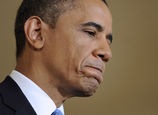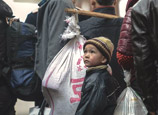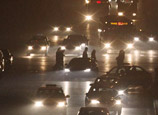
He believes that in less developed areas, such as Qinghai and Tibet, officials are still considering how to avoid opening the gaokao to migrants.
"If migrant children are allowed to take the gaokao in those regions, most of them could take opportunities away from local students to attend better universities because they have received better education in developed areas," he said.
Also, the rather harsh requirements in Beijing are a way to protect native students, said a teacher at a senior high school in the capital who asked to be identified as Yang.
She was referring to the fact that students who take the exam in Beijing can qualify for the city's colleges with lower scores than if they took it in other provinces.
"Nearly 70 percent of the students in our school have to go to vocational schools for further study every year," she said. "The city's new policy for migrant children will surely give those local students fewer choices in the future."
Analysts say such conflicts are triggered by an uneven distribution of education resources, which cannot be solved by the new gaokao rules.
As part of State policy to solve the education equity problem, Tan Songhua said the less-developed areas, with fewer education resources, will receive more benefits, such as more slots for students entering prestigious universities.
The recruitment plan already leans toward central and western areas, giving more opportunities to students there.
Last year, universities included in Project 211 distributed 10,000 recruitment opportunities to high poverty counties.
Project 211 involves about 100 universities that receive extra investment and attention from the State as they are considered good universities.
"Another effective way to tackle the gaokao problem is to give more supportive policies to upgrade education resources in less developed regions, such as build more top-class schools," Li Chang'an said.
"If there were top universities like Peking University and Tsinghua University in western regions, would migrant students still rush to Beijing?" he said.

















 Beijing style: Duck, opera, fog and cough...
Beijing style: Duck, opera, fog and cough...


![]()
